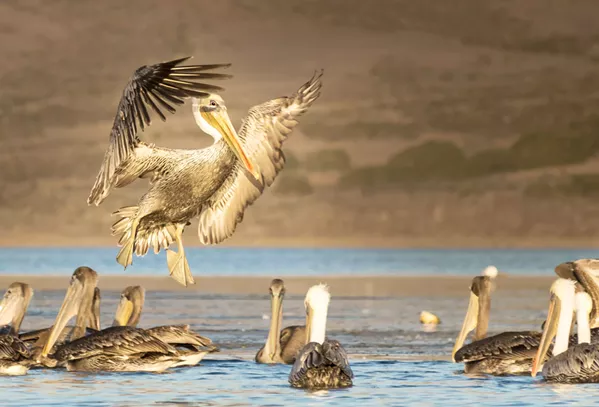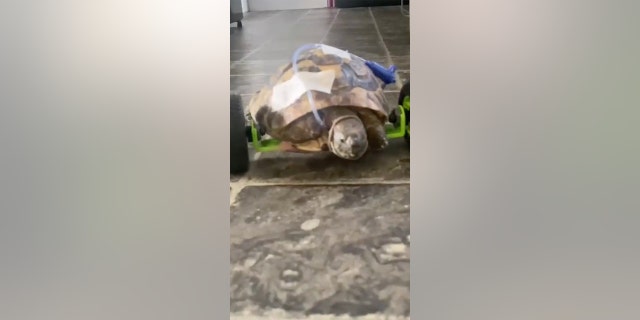Proposed federal bill would limit wild animal captivity wins applause from advocates despite exemptions

There is a renewed force to go a invoice that would end the upcoming captivity of almost all wild animals, tightly limit the licensing of zoos and tighten polices governing the welfare of any captive wild animal in Canada.
The Jane Goodall Act is back in the Senate just after being sidelined by the federal election in September 2021.
The monthly bill had been introduced in 2020 by former senator Murray Sinclair and obtained traction with animal conservationists throughout Canada.
If handed it will be the strongest piece of animal welfare legislation in the planet, according to Sen. Marty Klyne, who reintroduced the invoice this 12 months with new protections for captive fantastic apes, elephants, massive cats like lions and virtually 800 other species.
“We are likely to be setting up historic authorized protections for captive wild animals,” Klyne explained.
The monthly bill is named soon after Dr. Jane Goodall, the environment-renowned primatologist who has examined chimpanzees for far more than 60 a long time and designed the Jane Goodall Institute.
“I am honoured to lend my name to this planet-leading legislation,” Goodall explained in a push release from Klyne’s office environment in March.
The bill is backed by Canada’s greatest zoos, which include the Calgary Zoo and the Toronto Zoo.
“It’s a large first move for captive wild animals in this country,” saidCamille Labchuk, govt director of Animal Justice Canada, which is consulting on most effective methods for animal welfare in zoos for the monthly bill.
“It’s a incredible to start with action for captive wild animals in this state.”
— Camille Labchuk, executive director,Animal Justice Canada
But when conservationists are energized about what this suggests, animals already in captivity at the time of the bill’s passing will be left guiding.
The Jane Goodall Act doesn’t offer protections to animals like Lucy, who is a lone, senior elephant held captive at the Edmonton Valley Zoo, or to animals who may perhaps be gestating when the monthly bill is handed.
The act would, on the other hand, ban the transportation of sperm, eggs or embryos to prevent future captive breeding.
Lucy has invested 15 years in a small enclosure totally unlike her normal habitat, would be resigned to the destiny of remaining captive.
In accordance to In Protection of Animals, a U.S.-primarily based animal conservation team, this is “neural cruelty.” The group argues that Lucy’s situations of captivity induce mind problems to her and other elephants.
IDA publishes an once-a-year list of the worst zoos in North The usa. The Edmonton Valley Zoo topped the list in 2021.
But most new legal guidelines for wildlife comprise legacy clauses, reported Michèle Hamers, wildlife marketing campaign manager at Toronto-centered Canadian chapter of the animal-rights advocacy team World Animal Safety.
Even now, Hamers added, animals in captivity can be helped as a result of public assist for improved regulations.
A poll done by Environment Animal Protection in March showed 88 for each cent of Ontarians supported provincial regulations necessitating zoos to have a licence and meet welfare specifications.
But some zoos not accredited by the Canadian Association of Zoos and Aquariums may possibly slide by way of the cracks. They may possibly also forgo trying to get a licence for captivity for conservation or moral investigation applications, as necessary underneath the new bill.
“I’ve been working on this situation myself for a long time and it is a extremely difficult one to get zoos to transform,” reported Courtney Scott, elephant welfare guide for IDA.
Even so, the monthly bill enables zoos to keep on holding wild animals captive if they meet up with the “gold standards” set by CAZA.
These expectations are dynamic, dependent in science, and in the best pursuits of animals, Klyne claimed.
New polices will be included into the bill later on to tackle unaccredited zoos that mistreat animals, he observed.
These zoos will have to have to make a “quantum leap” to proper their criteria, Klyne added.
If zoos violate the act, they will be necessary by court docket order to mail their animals to sanctuaries approved by the federal environment ministry, surrender them to animal welfare authorities or immediately make improvements to the animal’s actual physical and social surroundings.
This will involve the prevention of any illegal trade in animals and animal pieces, this kind of as ivory or rhino horns.
Klyne mentioned he doesn’t foresee opposition toward the monthly bill.
“Just in a humane sense, I just can’t see a whole lot of men and women that would say no to this,” he explained.
The Jane Goodall Act will be given a third reading in the Senate in advance of going to the Home of Commons.
“I am optimistic,” reported Klyne, “but not having anything for granted that this monthly bill will get handed. We have a prolonged highway ahead of us listed here.”




